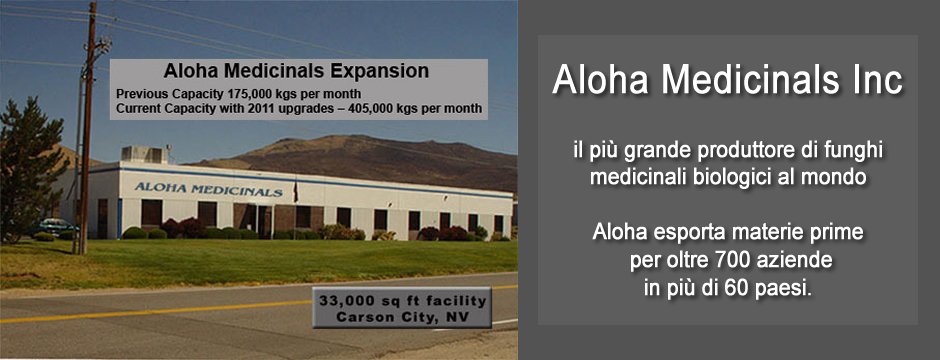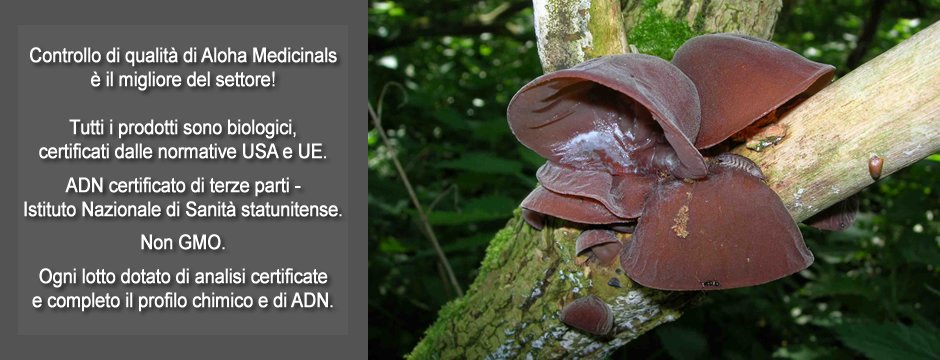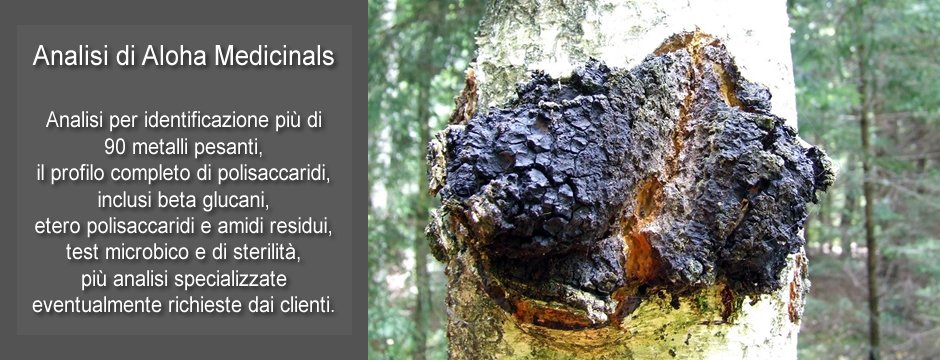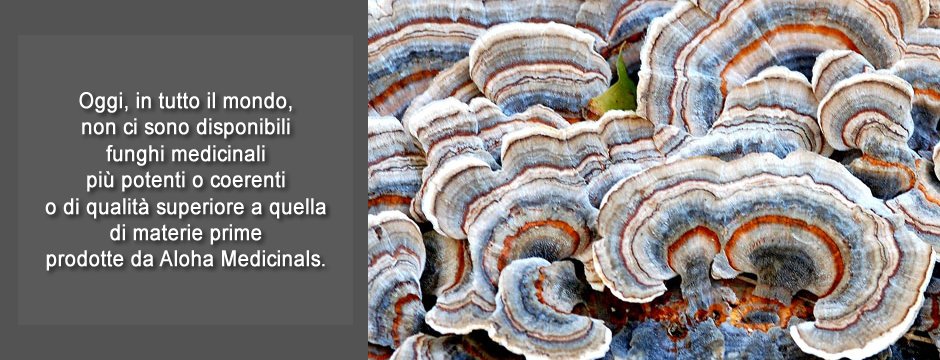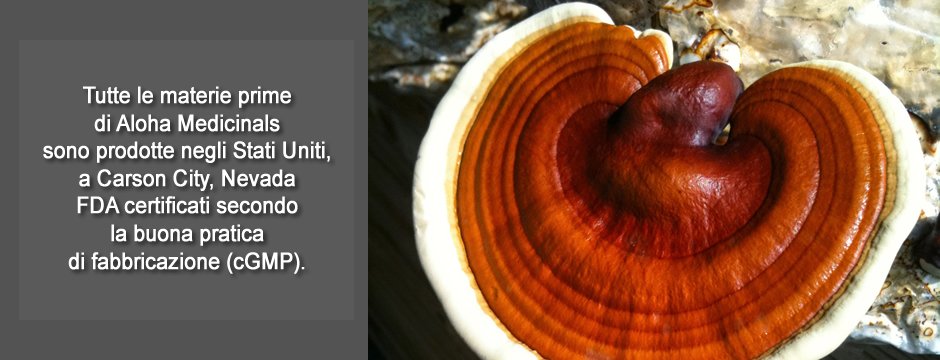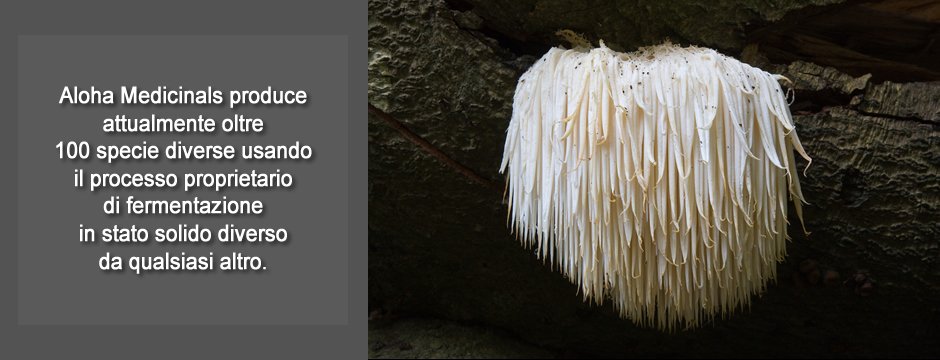Ganoderma Lucidum
Non abbiamo tradotto ma lasciato ogni pubblicazione scientifica sui funghi medicinale nella sua forma e lingua originale dal momento che tutte le informazioni provengono dal più rinomato, antico e più grande centro medico privato al mondo sul cancro, il Memorial Sloan Kettering Cancer Center, che si trova a New York, fondato nel 1884.
Scientific Name: Ganoderma lucidum
Common Name: Ling zhi, lin zi, mushroom of immortality
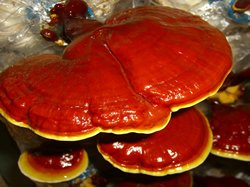
Bottom Line: Reishi mushroom has antioxidant properties and may enhance immune response.
Reishi mushroom contains complex sugars known as beta-glucans
that stop the growth and prevent spreading of cancer cells. When
animals were fed beta-glucans, some cells of their immune system
become more active. Limited data from clinical studies suggest
Reishi mushroom can strengthen the immune responses in humans.
In addition, reishi mushrooms contain sterols that can act as
precursors to hormones in the body, along with substances called
triterpenes that may have blood pressure-lowering and
anti-allergy (anti-histamine) effects. Reishi mushrooms have
also been shown to slow the process of blood clotting.
Reishi mushroom can cause toxicity in some immune cells. More studies are needed to show that it is safe and effective for cancer treatment.
- To treat fatigue
No scientific evidence supports this use. - To lower high cholesterol
There are no data to back this claim. - To treat HIV and AIDS
Laboratory studies suggest that reishi mushroom may stimulate certain cells of the immune system, but evidence is lacking on reishi's ability fight infections. - To lower high blood pressure
Laboratory studies suggest that reishi mushroom may lower blood pressure. Human studies are lacking. - To stimulate the immune system
Laboratory studies suggest that reishi mushroom may stimulate some cells of the immune system. A small clinical trial showed that reishi can enhance the immune responses in advanced-stage cancer patients. More studies are needed. - To reduce inflammation
Laboratory studies suggest that reishi mushroom may have anti-histamine effects. This has not been tested in humans. - For increased strength and stamina
No scientific evidence supports this use.
Lower Urinary Tract Symptoms (LUTS)
LUTS is common in older men and usually involves problems with
bladder filling or voiding. In a randomized, placebo-controlled
clinical study, 88 men with slight-to-moderate LUTS were given a
Reishi extract (6 mg daily) or placebo for 12 weeks. Reishi
extracts more greatly improved LUTS than the placebo. Also, no
severe adverse effects were reported. Larger, long-term studies
are needed to see if Reishi extracts can improve urinary flow in
men with more severe LUTS.
- You are taking or other blood thinners (Reishi may increase the risk of bleeding).
- You are on chemotherapy (Reishi may make some chemotherapy drugs less effective).
- You are using immunosuppressants (Reishi can stimulate immune responses).
- If you are taking drugs that are substrates of Cytochrome P450 2E1, 1A2, and 3A (Reishi may increase the risk of side effects of these drugs).
Case Reports
Two cases of liver toxicity, resulting in death in one case,
have been reported with use of powdered reishi mushroom.
A case of chronic diarrhea was reported in a 49-year-old man
with non-Hodgkin's lymphoma following long-term use of a
powdered extract of reishi mushroom.
Reishi mushroom is a fungus that holds an important place in
the traditional medical systems of China, Japan, Korea and other
Asian countries for its health promoting effects. It is used as
an immunestimulant by patients with HIV and cancer. The active
constituents are thought to include both beta-glucan
polysaccharides and triterpenes.
Extracts of reishi were shown to have immunomodulatory (2) (3)
(4) (5) (12),
renoprotective (9),
anti-inflammatory (36),
and hepatoprotective (37)properties
both in vitro and in vivo.
Clinical studies indicate its benefits in improing lower urinary
tract symptoms (LUTS) in men (10)
(20), and in
exerting mild antidiabetic effects and improving dyslipidaemia (29).
Reishi has also been studied for its anticancer potential. In
vitro and animal studies indicate that it has chemopreventive
effects (21),
alleviates chemotherapy-induced nausea (13), enhances the efficacy of
radiotherapy (22), and increases the sensitivity of ovarian
cancer cells to (27).
It may also help prevent nephrotoxicity (28).
In small clinical studies, reishi increased plasma antioxidant
capacity (6)
(7), and
enhanced immune responses in advance-stage cancer patients (8). Remission of hepatocellular
carcinoma (HCC) was reported in a few cases in a single study (23).
However, further research is needed to establish use of reishi
as an anticancer agent (30).
An in vitro study reported that reishi mushroom extract has toxic effects in leukocytes (14). More research is needed to determine its safety and effectiveness as an adjunctive cancer treatment.
- Fatigue
- High cholesterol
- HIV and AIDS
- Hypertension
- Immunostimulation
- Inflammation
- Strength and stamina
- Viral infections
- Polysaccharides
- Triterpenes
- Lipids
- Lectins
- Fatty acids
- Peptidoglycans
- Proteins
- Adenosine, vitamins, essential minerals
Beta glucans, polysaccharides present in reishi, have
demonstrated antitumor and immunostimulating activities (18). Its triterpene compounds may
inhibit tumor invasion by reducing matrix metalloproteinase
expression (16),
and tumor metastases by limiting attachment to endothelial cells
(17). Recent
findings indicate that reishi induces natural killer (NK) cell
cytotoxicity against various cancer cell lines via activation of
the natural cytotoxic receptors (NKG2D/NCR) and mitogen
activated protein kinase (MAPK)-signaling pathways, which result
in exocytosis of perforin and granulysin (31).
Reishi polysaccharides were also shown to increase expression of
the major histocompatibility (MHC) class I and costimulatory
molecules on melanoma cells, resulting in enhanced antitumor
cytotoxicity (32).
In other studies reishi increased plasma antioxidant capacity
(6) (7) and enhanced immune response in advance-stage cancer
patients (8).
Its extracts also inhibited 5-alpha reductase, an important
enzyme that converts testosterone to and is
upregulated in benign prostatic hyperplasia (9).
- Two cases of hepatoxicity, leading to death in one case, have been reported with use of powdered reishi mushroom (24) (25).
- A case of chronic diarrhea was reported in a 49-year-old man with non-Hodgkin's lymphoma following prolonged consumption of powdered extract of reishi mushroom (26).
- Anticoagulants / Antiplatelets: Reishi may increase the risk of bleeding (12).
- Immunosuppressants: Reishi can enhance the immune responses (8).
- Chemotherapeutic Agents: Reishi can increase plasma antioxidant capacity, and in theory, can interact with chemotherapeutic agents that rely on free radicals (6).
- Cytochrome P450 substrates: Reishi polysaccharides inhibit CYP2E1, CYP1A2, and CYP3A, and can affect the intracellular concentration of drugs metabolized by these enzymes (15).




